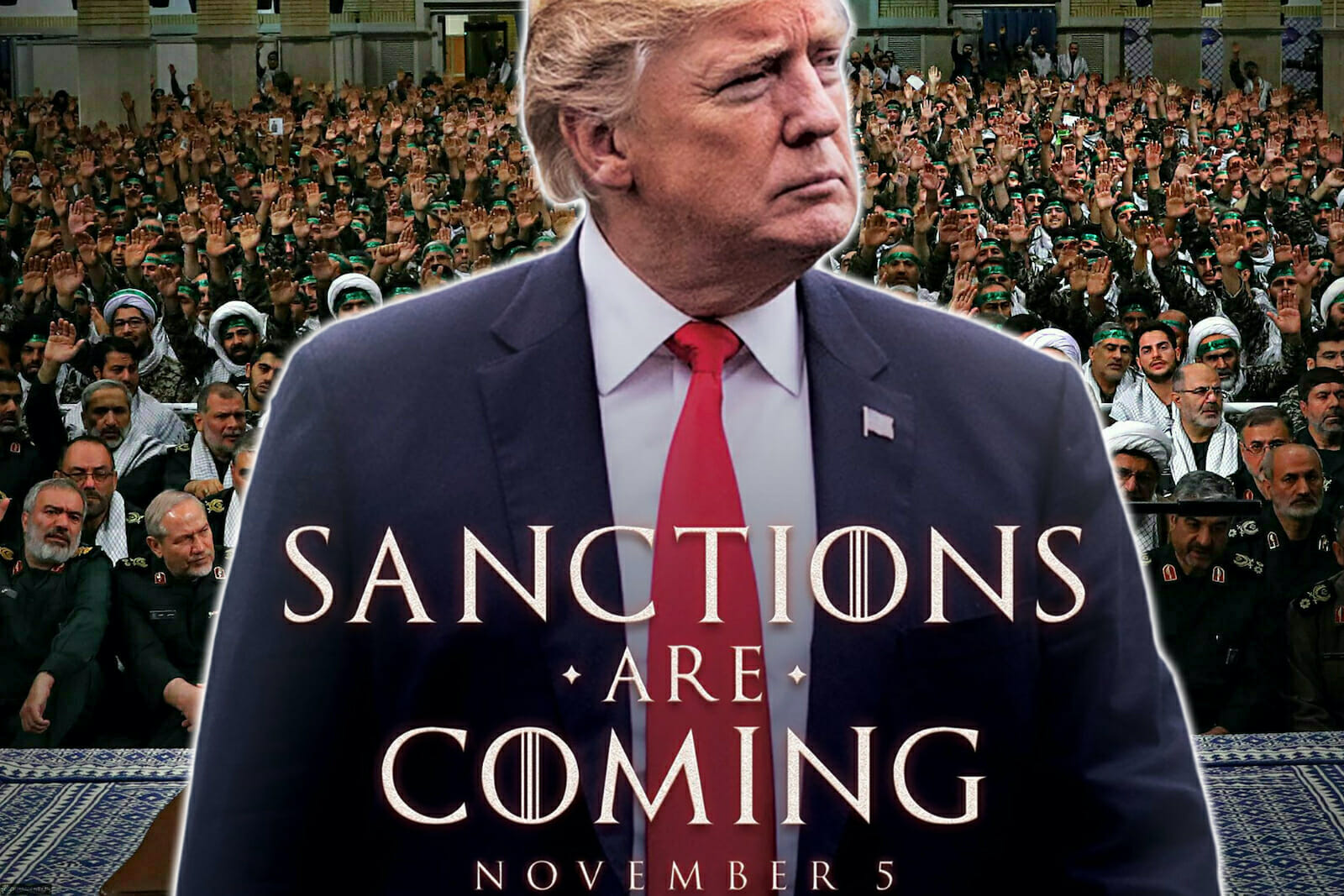
Death by a Thousand Cuts: Sanctions are Ineffectual
With America’s presidents and politicians cycling through terms, parts of American foreign policy are mutable. Right now, for example, President Joe Biden is trying to reverse many of Donald Trump’s policies from isolationism to climate change. But what has remained steady and persistent in the American toolbox are sanctions.
Yet despite the frequency of their use and discussion, sanctions are often misunderstood and mischaracterized. Listening to the words of today’s politicians and media sources, you might believe that sanctions are benign, a soft prod in the right direction, in contrast to the violent pressure of military intervention. This narrative benefits nobody but themselves.
Sanctions have become a politically convenient solution for politicians. Firstly, they enable politicians to reap all the benefits of appearing “tough on authoritarianism,” while spreading “American goodwill.” Secondly, and more importantly, sanctions bring little to none of the guilt bloody interventions do. Biden’s presidency exemplifies this behavior. Despite promising to reverse sanctions on Cuba, Biden did the opposite – slapping on more sanctions this month. After a flurry of new sanctions, he went further to even warn that “this is just the beginning.”
But this begs the question: If this is the beginning, then what is the end? When will cutting off cash flows ever lead to improved quality of life? The buzzword goals of sanctions, like “promoting human rights” and “democracy,” mean absolutely nothing if people cannot afford basic necessities. Behind these buzzwords, the insidious nature of sanctions is clear in the words of American politicians themselves.
Discussing the 1960 Cuban embargo behind closed doors, politicians understood exactly what sort of pain they were inflicting on the Cuban people – the people they were supposedly “rescuing.”
Lester Mallory, former Assistant Secretary of State, understood that the majority of Cubans supported Castro. Thus, he wrote that the “only foreseeable means of alienating internal support is through economic hardship.” A successful policy, he explained, “makes the greatest inroads in denying money and supplies to Cuba, to decrease monetary and real wages, to bring about hunger, desperation, and [the] overthrow of [Castro’s] government.”
These quotes from official government documents, which formed the line of reasoning for American policy, show that the government was not only fully aware of what they were doing to the Cuban people but also intentionally inflicting pain. The United States was and still is willing to ruin and steal the lives of innocent people, all in a gamble to artificially incentivize them to revolt. This logic is fatally flawed, relying on a simplistic understanding of revolution and a monolithic picture of the Cuban population. The fact that sanctions have been unable to achieve their stated objective of regime change comes as no surprise. Artificially creating starvation will not make the public more appreciative of American policies, no matter how much U.S. politicians think it will.
Ironically, America continues to pour money into this doomed project of “democracy promotion.” While cutting off food and medicine, the State Department requested $20 million just this month to upgrade radio and televisions outlets, hoping to reach more Cubans through propaganda. But why are we spending so much money on democracy? All of this money, and all of this talk of democracy, is wasted if nothing materially improves for the Cuban people.
Instead, for the people in sanctioned countries, sanctions are not an alternative or solution to violence, they are the violence. Depriving people of the money to buy necessities, and food itself, to keep people perpetually trapped in a state of poverty and hunger – that is violence, and it kills.
Thus, even official American documents admit that sanctions are not benign – they are economic warfare. They skip American boots on the ground in favor of directly targeting ordinary people in the selected country. Products such as sugar are banned under the Cuban embargo. Sugar is Cuba’s principal export; how people feed their children and pay the bills. Thus, cutting it off destroys a lifeline for real people.
Politicians and policymakers designed this destruction not as a side effect but as the primary goal. In Iran, the 2012 sanctions caused massive economic contractions, causing unemployment and inflation to go through the roof. Ordinary people lost their jobs as the prices of commodities rose – leading to a dismal quality of life. Throughout the past several years, medicine and other life-saving devices have become virtually unaffordable for most Iranians. Though not explicitly banned, hyperinflation made prices exorbitantly high. But in ex-State Department sanctions coordinator Richard Nephew’s book The Art of Sanctions, he described these as “a tremendous success.”
The idea that economic wreckage is the goal of sanctions alone destroys any rosy picture politicians attempt to paint of sanctions. Specifically, Biden, Trump, and virtually every politician characterize sanctions as targeted only towards oligarchs or some politically convenient “bad group.”
It seems terrifyingly obvious that inflicting nearly irreversible, widespread damage onto a country’s economy cannot possibly improve its domestic situation or drive it closer to America. But this is precisely the logic that sanctions follow. Sanctions on Iran have made chicken so unaffordable that Iranians could no longer afford to eat traditional holiday meals during the most important holidays of the year – all in an attempt to put pressure on the government.
Similarly, sanctions on Cuba have targeted remittances, funds sent to Cuban residents from family members abroad. Oligarchs do not need these small cash transfers, but they are a lifeline for lower-income families. A 2020 Florida International University study found that almost half of Cuban Americans send money to families back in Cuba. American logic believes that people will blame not sanctions but the Cuban government for the economic hardship. Cubans are supposed to be incentivized to incite revolution without this money, an idea so far-fetched that it could have come from a satire column.
We need to lift sanctions – not just in Cuba, but in every country where sanctions have contributed to poverty and starvation. It is not a matter of whether we endorse every policy of foreign governments – it is a matter of ending a policy that has done nothing except ruin lives.
